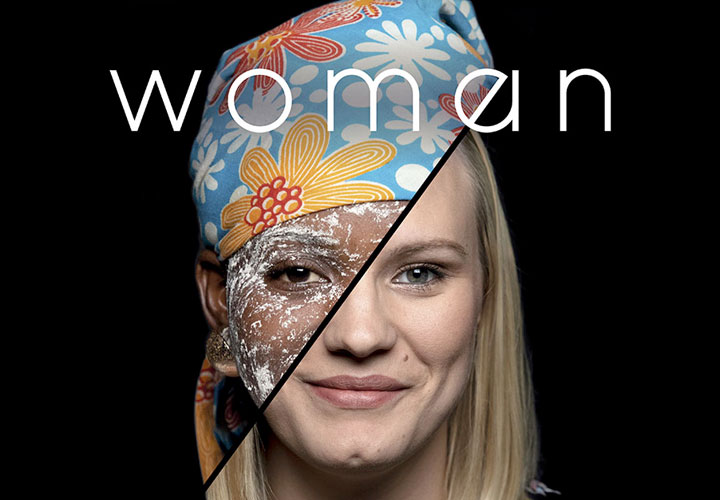The ENGIE Foundation supports diversity and early-stage researchers at IHES
A historical partner of IHES, the ENGIE Foundation has recently made a gift to IHES supporting early-stage researchers and female visitors at the Institute.

This support will contribute directly to the Institute’s operational budget, to finance both the organization of summer schools and the visits of women researchers to IHES.
The IHES summer schools are a major annual event at the Institute aimed at scientists at the beginning of their careers, doctoral students or post-doctoral fellows. By supporting these events, the ENGIE Foundation contributes to the transmission of knowledge and the training of new generations of researchers. In 2023, the ENGIE Foundation will support the summer school “Advances in algebraic K-theory“.
By supporting the visits of women researchers to IHES, the ENGIE Foundation strengthens its action to make scientific careers more accessible to women, who remain under-represented, especially in mathematics and theoretical physics, two key subjects at IHES.
With this new gift to IHES, the ENGIE Foundation goes even further in its commitment to support excellence in fundamental research at the highest international level, standing alongside early-stage researchers and women scientists.
In 2023, the ENGIE Foundation’s gift will be used to support in particular the visit of Delaram Kahrobaei, Professor of Mathematics and Computer Science at the City University of New York (CUNY), Honorary Chair of Cybersecurity at the University of York in the United Kingdom and Professor of Computer Science and Engineering at New York University.
Prof. Kahrobaei first visited IHES in 2004, when she was an assistant professor at the University of St. Andrews, UK, and she recently returned to IHES for a three-week visit, which will be funded thanks to the support of the ENGIE Foundation.
Read Delaram Kahrobaei’s portrait on the ENGIE website and discover here her video testimony as part of the series “Voices of Women at IHES”.
The ENGIE Foundation is committed to contributing to the Sustainable Development Goals in three areas: “Helping Children & Education”, “Access to Energy, Biodiversity & Climate” and “Employment and the Fight against Poverty”.
The Foundation’s three main priorities meet a single requirement: to take care of life and our planet, and to meet the needs of vulnerable or remote populations.
The ENGIE Foundation is convinced that the role of women is essential to contribute to the achievement of the Sustainable Development Goals. In this context, the ENGIE Foundation supports projects according to the following four criteria
- Strengthening women’s leadership and participation, particularly through education, access to culture and integration through employment
- Fighting against violence against women and against precariousness
- Strengthening women’s economic empowerment, particularly through access to energy
- Committing to gender equality.
Supporting impactful projects, participating in the collective effort of the 2030 Agenda and carrying ENGIE’s raison d’être are what guides the ENGIE Foundation’s action every day.
International Education Day
This Tuesday, January 24, we celebrate International Education Day, on the theme of investing in people, making education a priority. Today, education must be the priority to accelerate progress towards the Sustainable Development Goals.
According to UNESCO, 244 million children (aged 6 to 18) are still not in school and 771 million adults will not have mastered basic literacy skills by 2022.
For 30 years, aid to children and education have been at the heart of the ENGIE Foundation’s action and commitments, at the heart of its DNA.
With one conviction: to give the most vulnerable a chance to build the future.
The ENGIE Foundation wishes to offer the most vulnerable children the energy to learn and grow in a positive environment and is convinced that children will build the world of tomorrow, giving them the energy to act is vital for the future of the planet.
The Foundation supports projects in favor of education for the greatest number of people in France and abroad around 3 themes:
- Educating through sharing, transmission and discovery
- Educating for academic success through tutoring
- Educating to improve the living conditions of children

Educating through sharing, transmission and discovery
With UNESCO, share, transmit, debate
In June 2014, thanks to the ENGIE Foundation, UNESCO launched the first UNESCO Campus.
The objective of the CAMPUS: to put the expertise of UNESCO’s teams and its partners at the service of young people for a better understanding of major contemporary issues and to develop their civic spirit on the subjects for which UNESCO works. The campuses target middle and high school students in France and internationally, particularly in Africa.
UNESCO Campus has an impact on young people around the world: 2,000 participating students from 100 schools.
Discover the UNESCO Biodiversity Campus
https://www.youtube.com/watch?v=TpVExD4FY6o
https://www.youtube.com/watch?v=Mt5iFLQzQoQ&list=PLQoYyEOJcTWWgRrAyVGtYqqcSgGN9Uloi
With TAJO (GAND), workshops on energy
TAJO is a Saturday school that offers 9-12 year old in the Ghent region the opportunity to experience, during practical workshops, the different professions that are available to them for their future. This educational project has been supported for a year by the ENGIE Foundation.
In October 2022, about fifteen young people from TAJO discovered the world of energy alongside ENGIE employees. During workshops, they learned how to produce energy with lemons or solar panels. Or how an electric car and an electric circuit work.
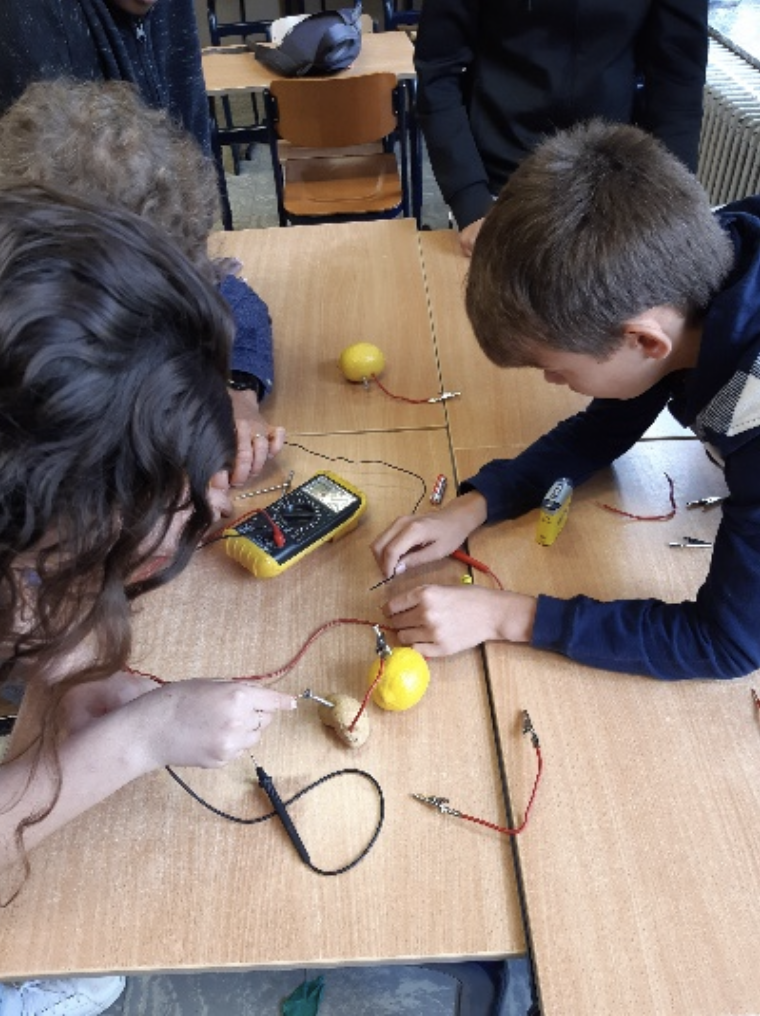
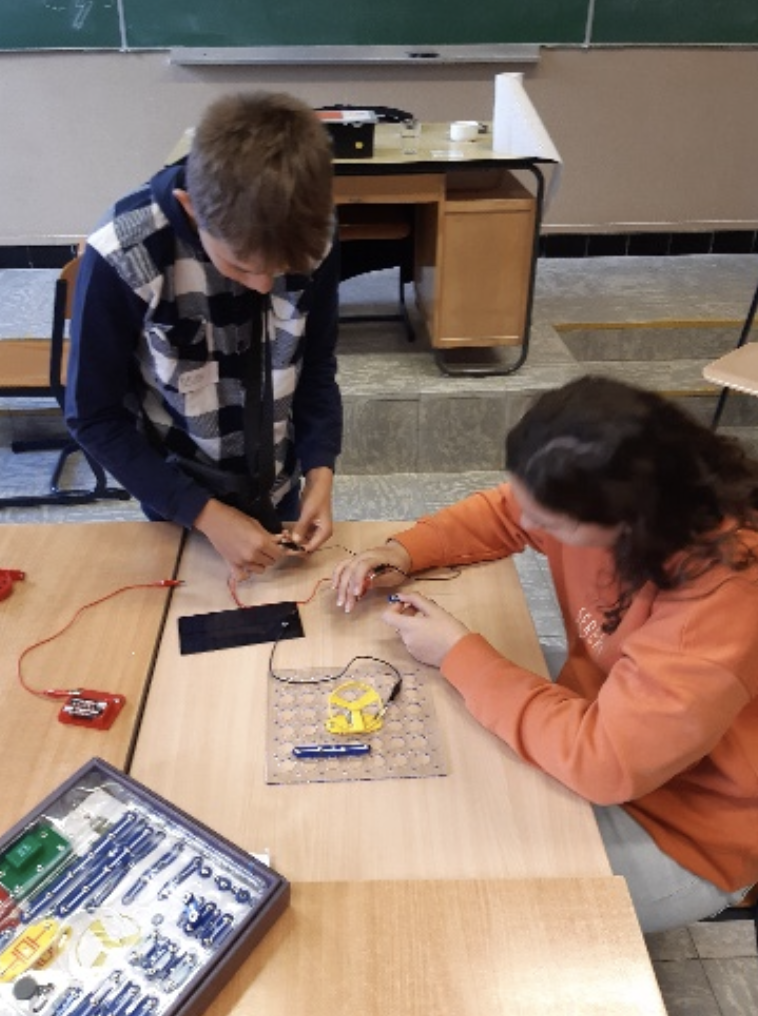
With FRIENDSHIP, connected schools in Bangladesh to exchange on the subject of energy transition
The Friendship organization, an international network of NGOs, born in Bangladesh in 2002, works with the country’s most vulnerable populations to support them and promote their access to vital services (health, education, energy, climate adaptation and citizens’ rights) with development projects and in emergency contexts.

@FRIENDSHIP
The Connected Schools project encourages students to share innovative solutions for dealing with climate change: logistical or behavioral adaptations, changes in practices and lifestyles, etc. By taking a stand on these issues, they will be able to become actors of change, by raising awareness in civil society (classmates, parents, associations, etc.).
Between January and June 2022, 8 secondary schools, equipped with internet connection and computers, participated in five exchange sessions with 8 French schools. The 2022 session was also a success, hailed by the Ministry of National Education, Youth and Sports and recognized by the French Development Agency, a new partner of this educational program for 3 years.
Key figures of the program
Each year :
- 20 schools connected in France and Bangladesh
More than 150 students in Bangladesh, 300 in France in correspondence - 30 teachers and educational managers involved
- 5 exchange sessions, including 2 interactive meetings
Educating for academic success through tutoring
With School Choice, encourage and accompany young graduates and young working people towards teaching in public colleges in priority neighborhoods
Created in 2015, School Choice is an association that accompanies young graduates and young working people who wish to switch to teaching in priority neighborhoods. To ensure their success in their new missions, and that of their students, the association trains and accompanies these young teachers during their first two years of teaching in primary, middle or vocational high schools.
Since 2015, we have provided support to:
- 310 teachers accompanied in 4 academies: Créteil, Versailles, Paris and Aix-Marseille,
- 55,000 primary, middle and high school students in priority neighborhoods have had a teacher supported by Le Choix de l’école since 2015,
- 89% of middle schools in Seine-Saint-Denis have had a teacher supported by Le Choix de l’école
As a partner of the Association, the ENGIE Foundation supports the development of the School Choice program in vocational high schools in the 4 partner academies and accompanies new female teachers in math and science, with the objective of encouraging the commitment of young women to scientific careers.
Testimonials:
https://www.youtube.com/watch?v=oBuost9f_yo&list=PLEp3ndQXx0_CG_3Qylf5P9HUJfRy1IbFi&index=3
https://www.youtube.com/watch?v=rHh9UagQgQA
With Fête le Mur: programs focused on academic success
Created by Yannick Noah more than 20 years ago, the association Fête le Mur allows children from the suburbs to play tennis in the heart of their neighborhoods, supervised by professionals and certified tennis coaches. Since its creation, the association has been offering educational support to young beneficiaries throughout the year in some of their sites.
Vacances Educ’Actives
Since 2020, the academic difficulties observed during the confinement have led them to develop during school vacations courses combining sports activities and academic support: the Vacances Educ’Actives. This program during the school vacations allows children who have fallen behind to catch up on their studies, but also allows them to resume a supervised physical activity.
La classe en fête
An innovative educational and academic support action, serving equal opportunities for beneficiaries in Cycle 3 (CM1, CM2, 6ème.)
It is for nearly 2400 children in Cycle 3 in Priority Neighborhoods, to have access to an application to review lessons, all subjects included, using the prism of the song to help them memorize the knowledge transmitted in class by their teachers. The children of the association will be the actors of the project because they will present the application to their classmates and will mobilize them to participate in the national challenge “A sound, a lesson” which will elect the best creation of lesson in song.
With Coup de Pouce, equal opportunities and prevention of school dropout
For 30 years, the Coup de Pouce association has been working alongside schools and supporting parents so that each child develops a taste for learning and the ability to learn. To do so, the association designs and distributes after-school programs offered to municipalities or other educational actors. Each of its programs is tested, evaluated and implemented in a rigorous manner in a continuous improvement process.
Their vision: Academic success is a right for every child, regardless of his or her social and family environment, and a responsibility shared by the French National Education system, parents, local authorities and civil society.
The ENGIE Foundation supports Association Coup de Pouce Partenaire de la réussite à l’école to promote equal opportunities and prevent school dropout. 300 children from kindergarten to CE1, accompanied in 60 Coup de Pouce clubs in the Hauts-de-France region with support for reading, writing, maths etc.

With Valued Citizens, work on self-esteem in South Africa
Valued Citizens is an association that aims to inspire individuals to become responsible citizens, determined to lead their lives by engaging in South Africa’s democracy and economy. Since 2009, the ENGIE Foundation has been supporting the NGO on the iNSIRE program.
iNSPIRE is a program that focuses on self-development with psychosocial support so that adolescent girls can free themselves from their emotional wounds (betrayal, humiliation, abandonment, injustice…).
The INSPIRE program strives to empower marginalized adolescent girls to
– Take control of their lives with resilience and dignity;
– Gain self-awareness and conquer their fears, anxieties and “ghosts” related to situations of abuse or abandonment;
– Preventing the victimization of young women;
– Becoming active and engaged citizens who make a positive change in their schools and communities;
– Take responsibility for their own actions and the collective actions carried out through their citizen project;
– Know how to manage a project as a leader and their life project with determination and self-confidence;
– Communicate with impact to influence a school community;
– Become independent young women who contribute to South Africa’s economy.
The program invests in 6 high schools in the same vicinity, in order to have an impact on the community of a rural district where townships are numerous within the Gauteng province where Engie is present.
This program is specifically designed for:
– 12 teachers who will become the school support team (2 per school)
– 180 teenage girls in grade 3 – 30 young female students per high school aged 15/16 – 20 recognized leaders and 10 vulnerable teenagers.
– 300 high school students will be directly involved in their citizenship project which will have an impact on all schools representing approximately 5100 students, boys and girls but also parents and community leaders.
Know more > https://www.youtube.com/watch?v=HNPmsZUGHMM
Educating to improve the living conditions of children
With Instituto Melhores Dias, improving the quality of life of communities
Instituto Melhores Dias (IMD) began its activities in 1993 and was established as a Brazilian non-profit organization in 1995. Over the past 29 years, IMD has promoted the improvement of the lives of children and communities through programs in the areas of health and nutrition, education, health prevention, physical activities, culture, environment, among others.
More than 12 million people have benefited from these programs, in 16 Brazilian states and 75 cities. More than 50,000 teachers, cafeteria workers and community health workers have been trained and 3 million children have received health and nutrition education. With a mission to promote the healthy development of children, through the formation of partners and the articulation of local networks, the Institute has gained experience in developing projects in schools and communities, in partnership with local governments, with the support of foundations and national and international companies.
Healthy School in Lages and Pedro Avelino, RN, Brazil
The project brings direct and indirect improvements to the quality of life of communities through educational actions in health prevention and hygiene. It is a multi-faceted program that provides participatory education on preventive health and general nutrition, treats children on major nutrient deficiencies and engages families and communities in efforts to improve their health and standard of living. Improved health in these communities is achieved through interventions that include biomedical examinations and treatments, as well as education on the importance of good hygiene practices and community involvement.
UNESCO is dedicating this year's International Education Day to the girls and women in Afghanistan who are denied their right to education and is calling for an immediate end to this ban on education
The ENGIE Foundation has supported the Free Afghanistan association since 2015 in favor of education for girls in Afghanistan via a digital training program with Free Afghanistan in the provinces of Panjshir and Kabul.
After participating in the electrification of 13 schools, the ENGIE Foundation financed a project of “digital classes”. Goal : to train young girls in digital skills.
600 young girls were trained each year in the framework of the digital classes after having followed the three-year training program.
Impact
– 600 female students aged 15 to 17 trained over three years, 70% success rate in the exam
– 5 pilot classes, one of which will open in 2019 in Kabul province
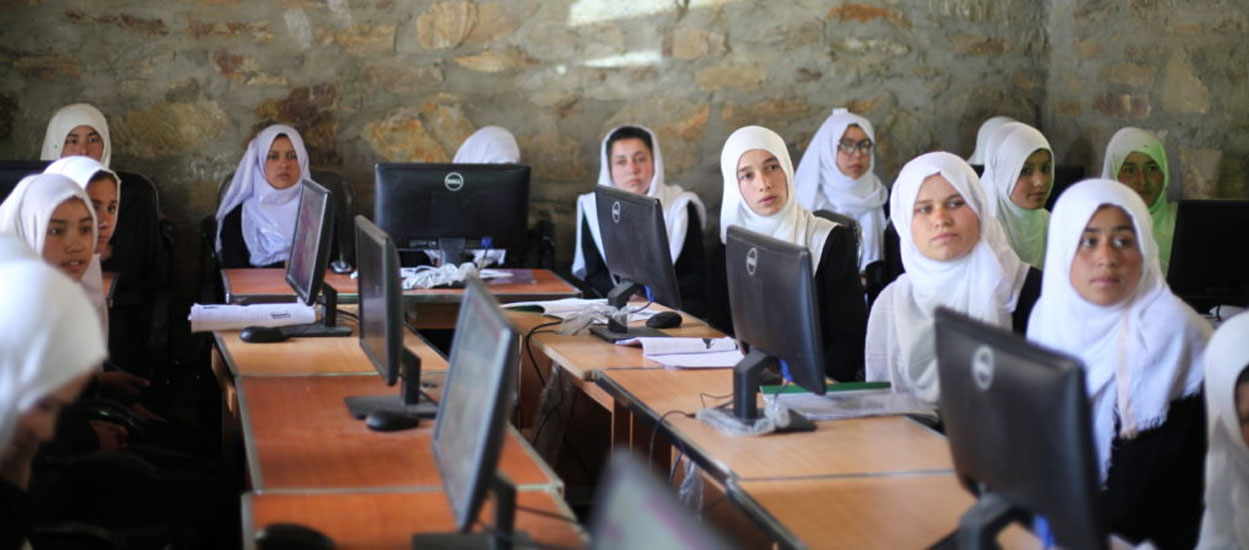
World Climate Day
This Thursday, December 8, we celebrate the World Climate Day, initiated by several NGOs in France and Belgium. To remind the threat of global warming and the need to act to limit its effects.
The objective of this day is to raise awareness of climate change issues and to make people aware of the increasingly important impact they have on our Earth.
This day aims to raise awareness on climate change issues and to expose the increasingly important impacts they have on our Earth.
The ENGIE foundation acts for the climate around 3 themes :
- Raising awareness and mobilizing young people
- Support for research
- Concrete actions to fight against global warming
With 52% of its projects dedicated to access to renewable and sustainable energies and to biodiversity in 2022, the ENGIE Foundation is committed to the environment year after year. Supporting impactful projects, participating in the collective effort of the Agenda 2030 and carrying ENGIE’s raison d’être – “acting to accelerate the transition to a carbon-neutral economy, through more energy-efficient and environmentally friendly solutions” – is what guides the ENGIE Foundation’s action on a daily basis.
Raising awareness and mobilizing young people for the climate with the support of the ENGIE Foundation
"Warm up the atmosphere...not the planet"
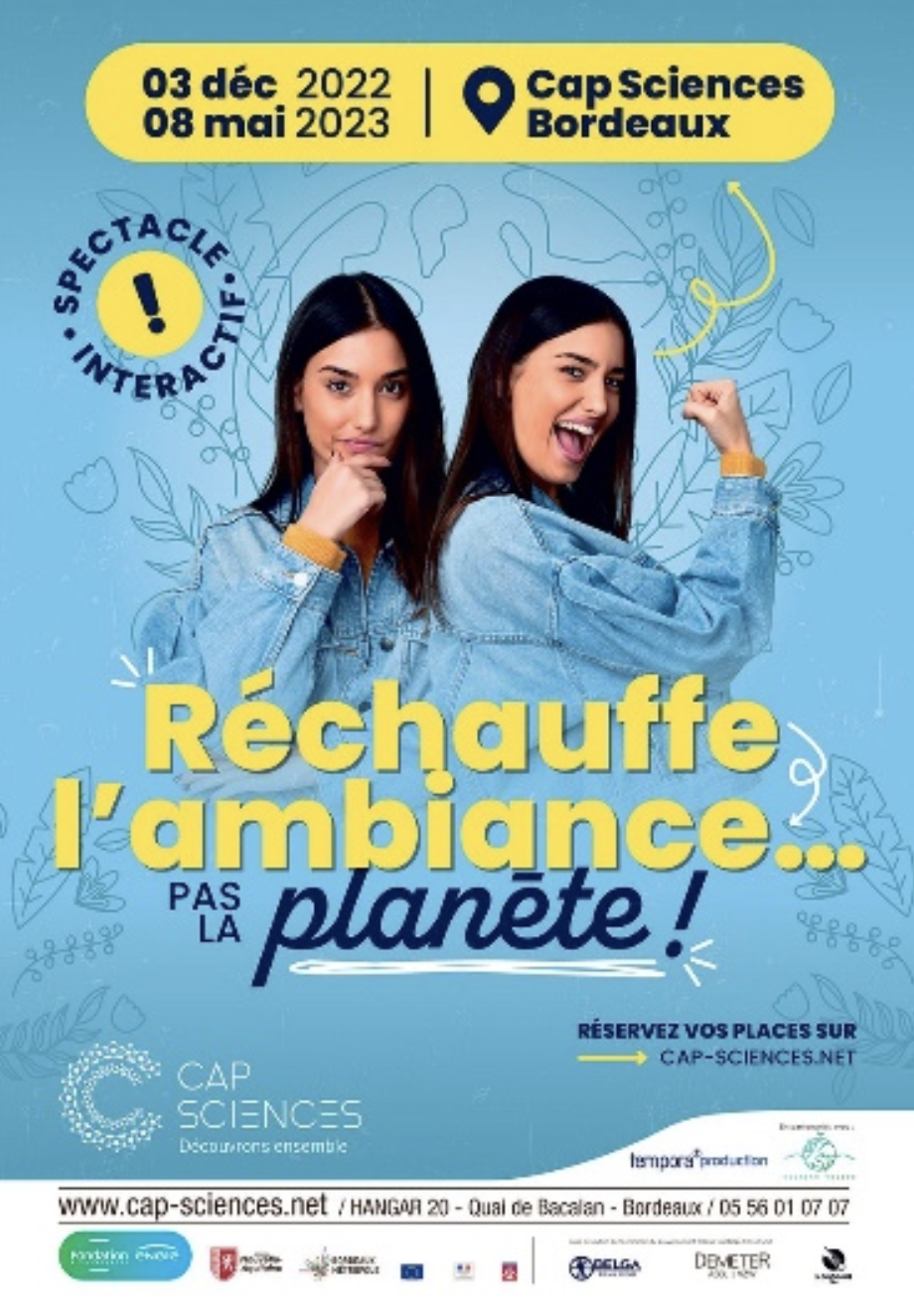
This is a collective and immersive experience on the climate from December 3, 2022 until May 8, 2023 at CAP Sciences Bordeaux. The ENGIE Foundation is a partner of this interactive event, a mix between theater, cinema and a workshop that explores with humor the subject of the climate emergency, answering questions and highlighting solutions, gestures that everyone can adopt.
Raising awareness of climate issues is one of the priorities of the ENGIE Foundation.
To find out more about this hard-hitting and engaging show that will help you move from awareness to action:
Réchauffe l’ambiance… pas la planète ! – Cap Sciences (cap-sciences.net)
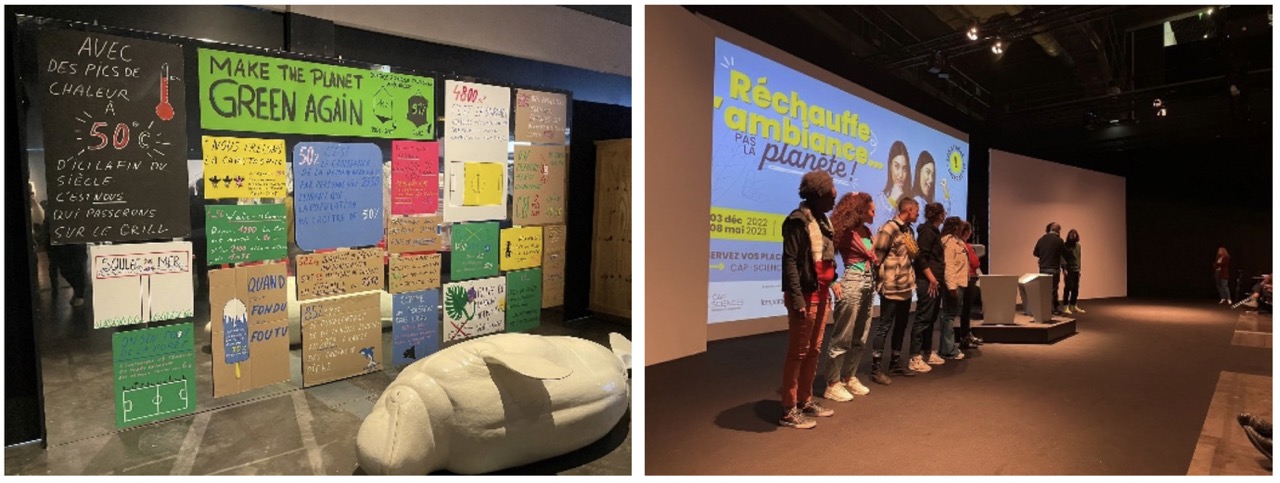
A "Re-generation" of 8 young people committed to the climate.
With the support of the ENGIE Foundation, GoodPlanet Belgium organized a 4-day training for young people who want to commit themselves to the climate. The goal of this initiative is to train them to become future climate coaches who will reach out to the younger generation to raise awareness and change behavior to protect the future of our planet. Their working group is called “Re-generation”.
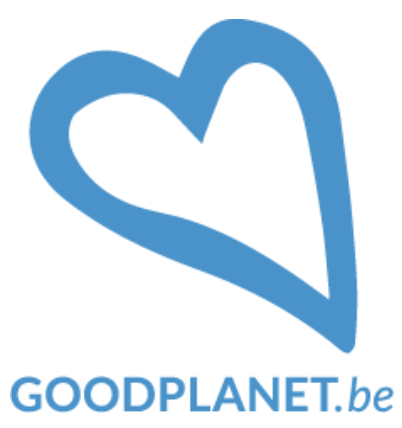
GoodPlanet inspires and encourages all generations to live sustainably. For a healthy planet, for everyone, for today and tomorrow. Good Planet relies on education to play an essential role in the transition to a more sustainable society through its projects, campaigns, workshops and by sharing its knowledge.
The two-weekend training was organized in two parts. The first part focused on topics related to global warming, approached with the help of games, a debate on the ecological transition for a country like Belgium and the Climate Mural. The second part, focused on the development of their skills to become themselves a coach and present a topic to an audience.
Théophile Lienhardt, coordinator of the project at GoodPlanet testifies: “Several young people told us that they really appreciated the speaking part and learning to put forward their emotions. Indeed, for some participants, the consequences of global warming affect them personally as well as their families. Learning how to manage their emotions in order to convey a powerful message appealed to them!”
Since the end of this training, the young people involved have been speaking out on global warming and reaching out to young people.
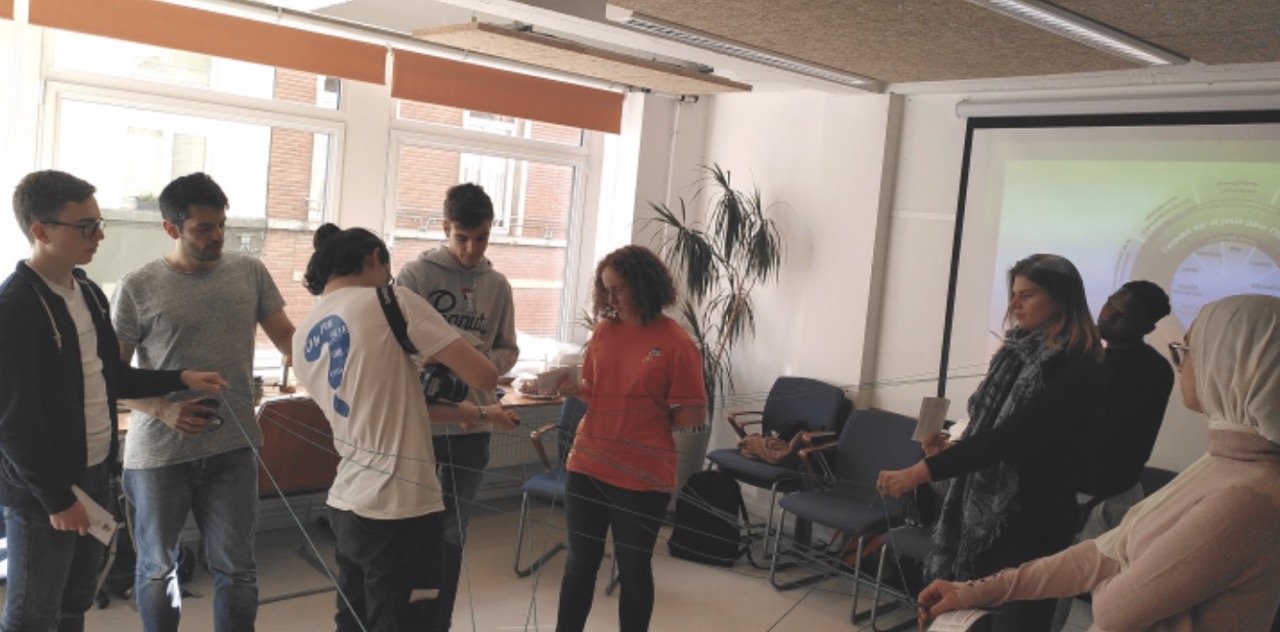
Fighting climate change by supporting research.
Chair: Resilience of energy systems to climate change and negative emissions.
The Chair, supported by the Institut Polytechnique de Paris, is a project aiming to study and conduct work to address both the issue of resilience, adaptation and also mitigation with a particular focus on negative CO2 emissions.
This charter of the Polytechnic Institute will be articulated around 4 axes:
Axis 1: The impact of climate change on the producibility of our renewable assets (solar, wind and hydro) and industrial resilience with regard to the associated risks (on an international scope).
Axis 2: Carbon-negative technologies. At this stage, companies are not working as hard on these issues, but they will probably be necessary to compensate for non-avoidable emissions. These technologies raise questions of maturity, economic model and also societal acceptability.
Axis 3: Modeling of integrated energy systems, notably involving electricity, gas and heat/cold networks, storage and production of various kinds. The grid may be local or national.
Axis 4: Training students in the challenges of decarbonation.
The ENGIE Foundation, patron of this project at the Institut Polytechnique de Paris, supports this project created as an educational tool on a campus scale. Education and training are at the heart of the ENGIE Foundation’s commitments.
Trent Chair: study of territorial energy transitions in New Aquitaine.
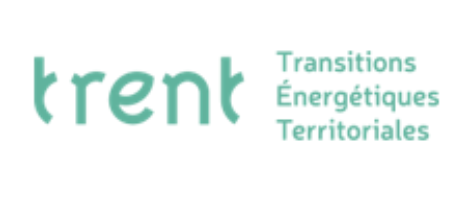
This chair, which is held by Science Po on the Bordeaux campus, is a project that aims to study the legal, economic and social aspects of the energy transition in three areas: increasing the professionalization and internationalization of training, strengthening support for research and disseminating knowledge.
The TRENT Chair aims to:
- to professionalize and internationalize the students’ curriculum (support for students in terms of internships, hosting of local or international experts, creation of a document collection, organization of study trips),
- strengthen support for research on this theme (university observatory, hosting of interns, dissertation prizes, mobility grants, promotion of scientific work),
- share the expertise developed and disseminate knowledge (organization and participation in conferences, strengthening bridges between private and public actors, final publication on all the results achieved).
The ENGIE Foundation, patron of the Chair, brings with the ENGIE Group: strategic orientations, a business and field vision, an adequacy of the actions with the needs of the sector (sharing of field expertise, tutored projects, hosting of trainees…) and relays communication actions.
Some emblematic projects supported by the ENGIE Foundation to limit the effects of global warming
Restoration of mangroves in southern Bangladesh with Friendship
The Friendship organization, an international network of NGOs, born in Bangladesh in 2002, intervenes with the most vulnerable populations of the country to support them and promote their access to vital services (health, education, energy, climate adaptation and citizens’ rights) with development projects and in emergency contexts.
The Engie Foundation has been supporting this NGO for over 10 years.
Bangladesh is a country particularly vulnerable to floods, tropical storms and cyclones, which are increasing in frequency and intensity due to global warming.
In the coastal region, mangrove forests have a vital function for development and socio-economic prosperity as these ecosystems provide many resources to poor local communities and act as barriers against coastal erosion by mitigating the effect of waves on dykes and limiting saltwater intrusion on fertile land.
Although mangrove planting is a priority climate change adaptation measure in Bangladesh, many reforestation projects are not sustainable because they consist of non-resilient monocultures, are not properly managed during the growth phase, plant the wrong species in the wrong place, or do not take socio-economic factors into account.
In this challenging environment requiring a threefold joint action on environmental, socio-economic and disaster resilience, Friendship has developed a nature-based solution with three goals:
- Plant at least 5 different tree species on hundreds of hectares along tidal rivers. The direct benefits are the limitation of dyke erosion, the protection of agricultural soils against salinization and the improvement of biodiversity and thus the productivity of terrestrial and aquatic biotopes;
- Include the poorest and most vulnerable residents to climate shocks and diversify their livelihoods. This ensures that the trees planted will mature without being degraded by livestock or people driven by poverty.
- Involve local authorities and strengthen their cooperation with the people.
Friendship’s mangrove planting program was initiated in 2017 with support from the Luxembourg Ministry of Environment, Climate and Sustainable Development under the International Climate Finance. More than 100 hectares of mangroves have already been restored in Satkhira district (southwestern Bangladesh), near the Sundarbans, the world’s largest mangrove forest and a UNESCO World Heritage Site.

Raising awareness and planting trees in a Los Angeles neighborhood: an initiative of ENGIE Group North America employees with TreePeople.

TreePeople is a mouvement founded over 40 years ago from the hopes and dreams of a teenager. It supports Southern California residents in coming together to plant and care for trees, harvest rainwater and renew impoverished landscapes, and work with communities to develop greener, shadier and more water-efficient homes, neighborhoods, schools and surrounding mountains.
Today, with the help of 3 million people, the organization has planted more than 3 million trees in the Los Angeles area and has developed one of the largest environmental education programs in the country. TreePeople is now the largest environmental movement headquartered in Southern California.
Its mission: to inspire, inspire and help people take personal responsibility for the urban environment, making it safe, healthy, fun and sustainable, and to share their process as a model for the world.
The planet is getting warmer and big cities are the most affected areas. Studies have shown that by 2050, Los Angeles’ average temperatures will have increased by 1.6°C to 3.85°C. This warming will have a significant impact on communities.
Planting trees is one of the possible solutions to deal with global warming: they clean the air, release oxygen, create a shaded area in the street…
On April 22, on the occasion of Earth Day, the partnership was formalized with the objective of organizing a tree planting in 2023 alongside TreePeople, with the support of the ENGIE Foundation. For the occasion, a moment of awareness was held for the employees with the intervention of a scientific researcher on the advantages of the urban canopy and the solutions based on nature to limit the effects of global warming.
Working alongside this organization reflects the ENGIE Group’s commitment to the fight against climate change.
Find out more about the movement : About Us – TreePeople

At the heart of the ENGIE Foundation's action: Access to energy and employee mobilization with Energy Assistance
To promote employee engagement and develop access to energy for the most vulnerable populations, the ENGIE Foundation has structured its “Access to energy for all” programme by providing strong support for the action and operation of two internal NGOs, Energy Assistance, created in 2001 in Belgium and in 2005 in France, by volunteer employees of the ENGIE group.
Give them the means to act and federate, share a common commitment to allow access to energy for the most vulnerable populations, with a target of one million beneficiaries by the end of 2025.
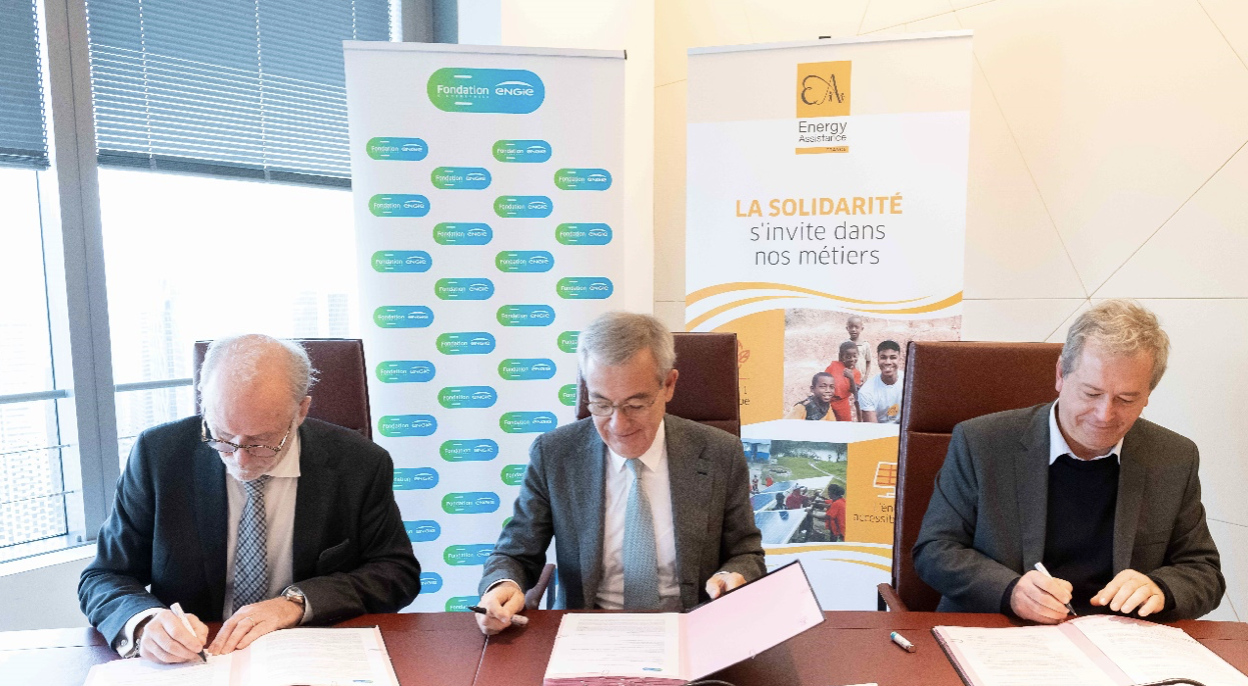
Signature of the 2022-2025 framework agreement by Jean-Pierre Clamadieu, Chairman of the Board of Directors of ENGIE and the ENGIE Foundation, Tony Moes de Hase CEO of Energy Assistance in Belgium and Eric Bassac President of Energy Assistance France
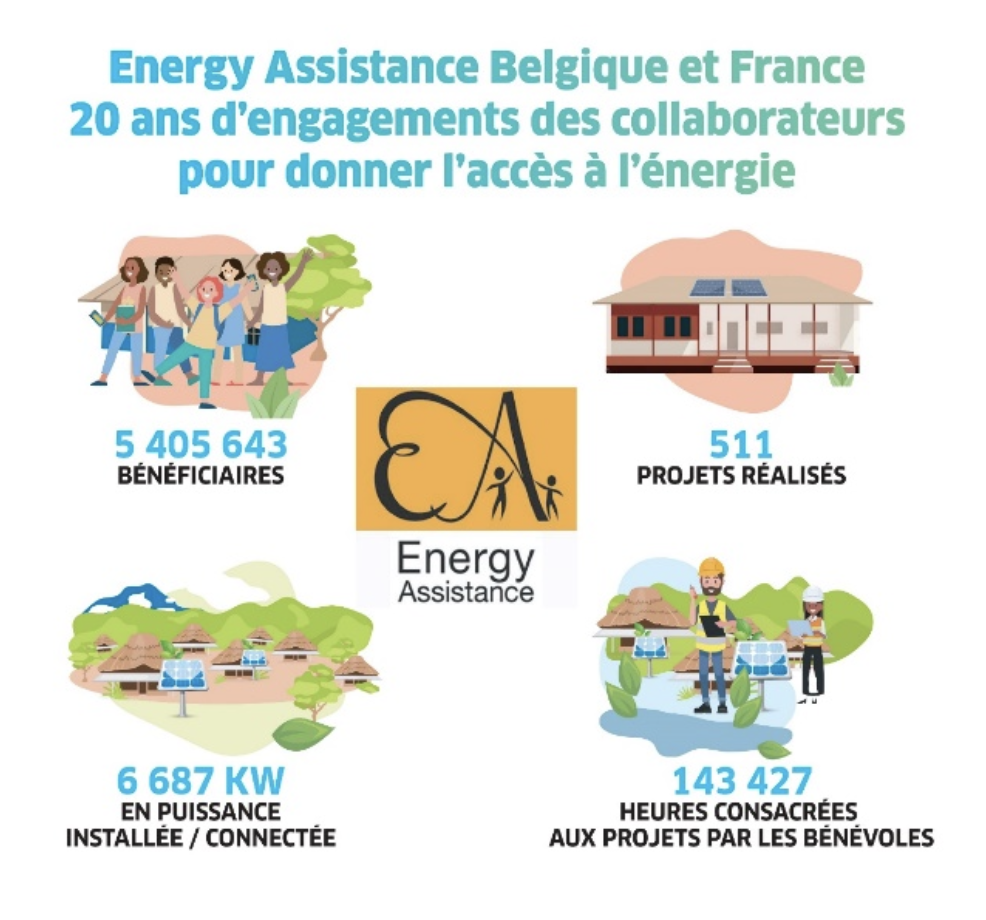
Created by voluntary and committed collaborators in Belgium and France, the mission of Energy Assistance associations is to bring energy to the most disadvantaged and isolated populations in the world to provide them with essential services and to improve their living conditions, thanks to sustainable, long term, autonomous and low-carbon energy installations.
These humanitarian projects cannot be carried out without the commitment of ENGIE Group employees, who made their skills and know-how available.
In 2022, 40 projects, supported by the Foundation, were carried out thanks to 67 volunteers.
Giving access to energy means improving daily life, increasing access to drinking water, health, and allowing education under good conditions. But for this to happen, it is essential to give priority to clean and renewable energy sources, to educate and raise awareness.
The ENGIE Corporate Foundation is committed to contributing to the Sustainable Development Goals (SDGs)
With 52% of its projects dedicated to access to renewable and sustainable energies and biodiversity in 2022, the ENGIE Foundation is committed year after year to access to energy and the environment. Support impactful projects, participating in the collective effort of the 2030 Agenda and carry ENGIE’s raison d’être – “act to accelerate the transition to a carbon-neutral economy, through more energy-efficient and environmentally friendly solutions”.
The ENGIE Foundation acts to provide:
- Energy through employee engagement
- Energy for the education of the greatest number
- Energy to improve lives on a daily basis
With Energy Assistance, the ENGIE Foundation wishes to
- Contribute to the 2030 Agenda and to the achievement of the 17 Sustainable Development Goals
- Mobilize employees more strongly
- In the field of general interest, to provide an illustration of ENGIE’s raison d’être: to work for carbon neutrality among the poorest populations, most often located in isolated areas.
Examples of projects carried out in 2022
Energy to save lives at Panzi Hospital (DRC)

Panzi Hospital was founded by Dr. Denis Mukwege. The 2018 Nobel Peace Prize laureate, Dr. Denis Mukwege is nicknamed the “fixer of women”. This world-renowned hospital is known for its vocation to help women survivors of sexual violence related to armed conflict. Each year, 2300 women victims of sexual violence are operated on.
The ENGIE Foundation financed the energy equipment for 5 new operating theatres, work that was carried out by the employees of the internal NGO Energy Assistance Belgium.
More information: The ENGIE Foundation supports a major project in Africa to combat violence against women – ENGIE Foundation (fondation-engie.com)
Energy for the poorest
Solar street lights for the villages of AKAMASOA in Madagascar
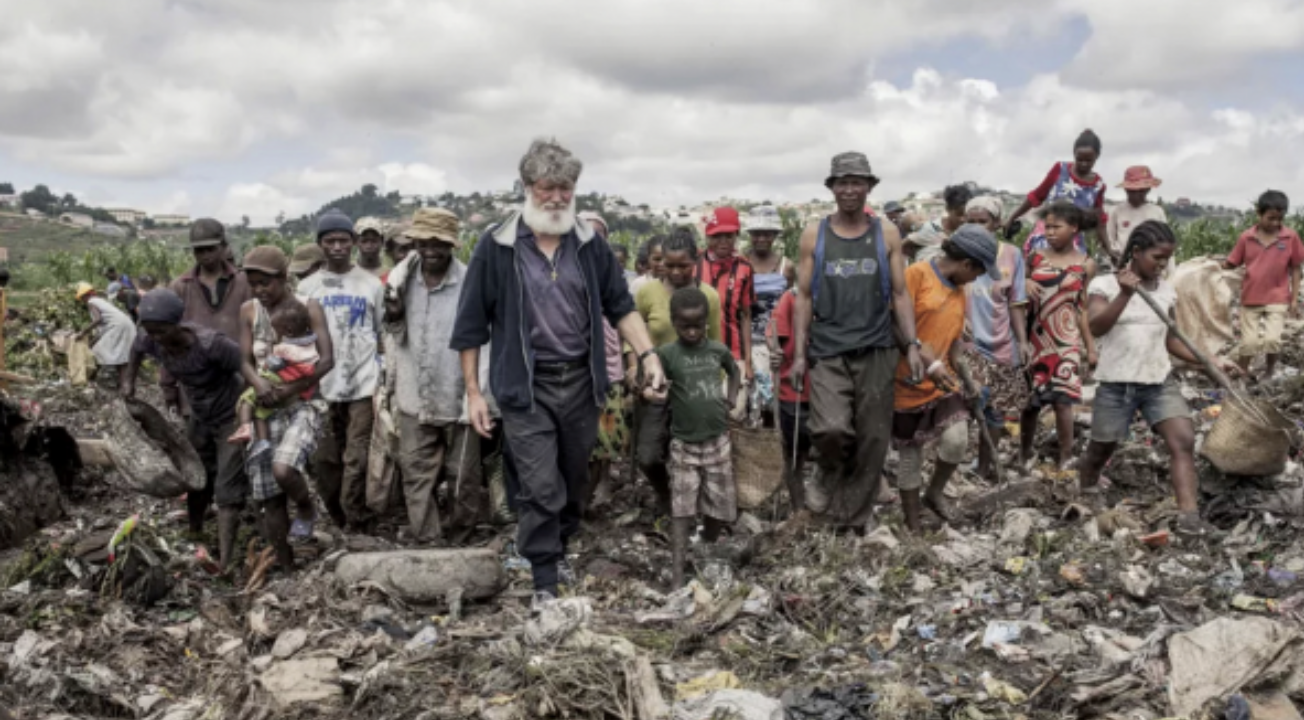
The Humanitarian Association AKAMASOA was created in 1989 by Father Pedro to help the poorest people of Antananarivo, who lived on the dump of Andralanitra and in the streets of the capital. His goal was to get these people out of the inhumane places where they lived, so that they could lead a human life in dignity.
Today, after 26 years of struggle, the AKAMASOA association has helped 500,000 Malagasy. 3,000 houses have been built.
Thanks to the mobilization of Energy Assistance France and ENGIE employees, 9 solar street lights have been installed around the three sports fields present in Father Pedro’s villages for 5,000 young beneficiaries.
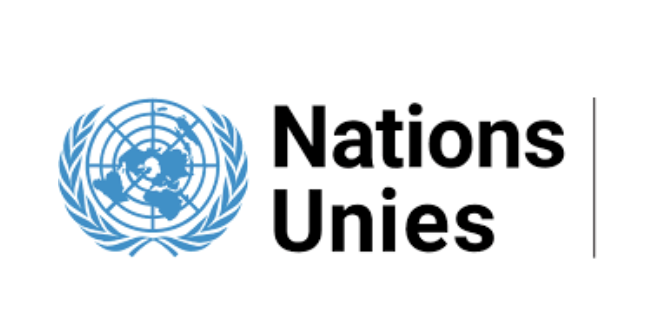
Every year on 5 December, the UN celebrates the theme of solidarity through volunteerism with “International Volunteer Day”. This campaign aims to highlight the power of collective action and commitment to bring about positive change through volunteerism and highlight those who give their free time, energy and skills to help others: volunteers.
Growing inequalities around the world call on us to work together to find common solutions. Volunteers, brought together by their solidarity, develop solutions to the urgent development challenges and for the common good
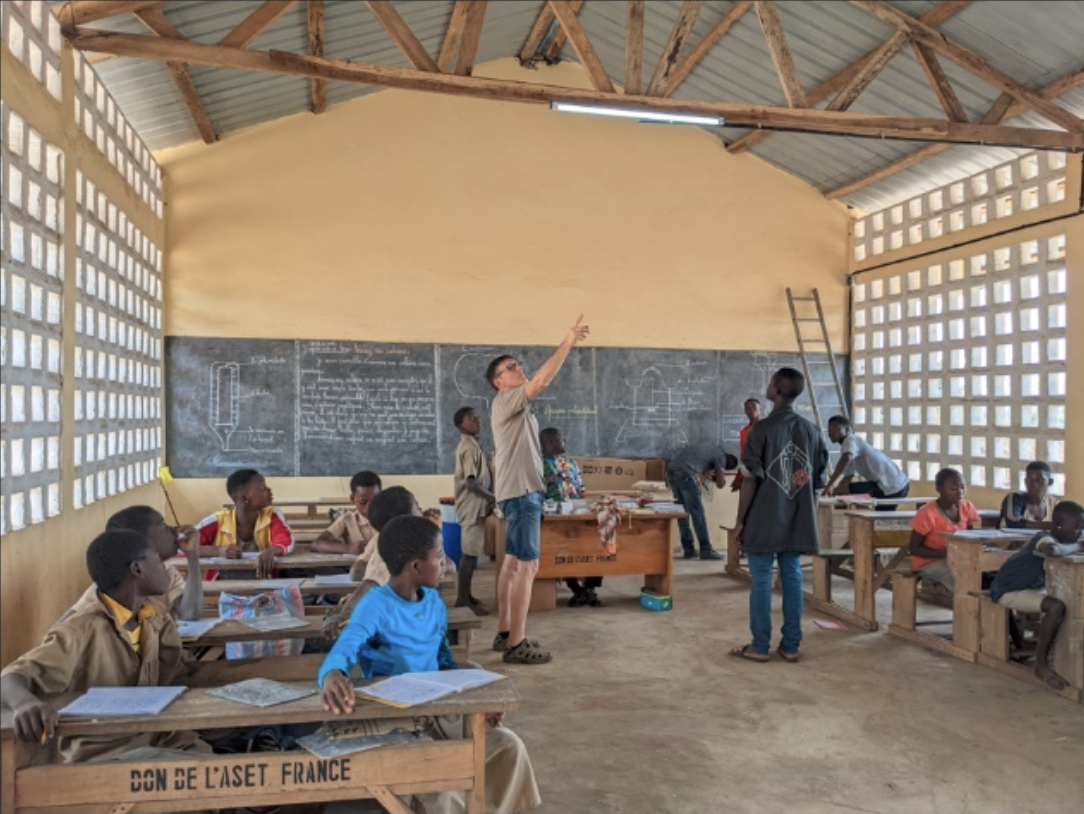
The ENGIE Foundation supports many associations around the world. It is aware that without many volunteers who are committed, solidarity projects would be difficult to carry out.
It is convinced that together we can bring our support to the most vulnerable.
On this day, the ENGIE Foundation encourages you to get involved, to give a little of your time occasionally or regularly for a solidarity action and invites you to get closer to NGOs after you, but also those internal to your company.
Portrait of 2 committed employees, Transition Markers
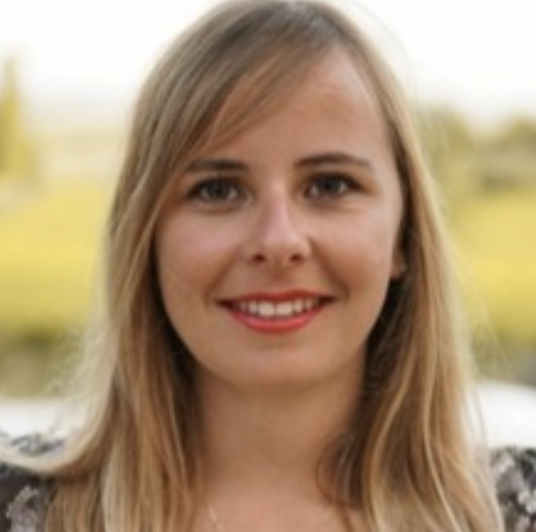
Tiphaine Houssin
ENGIE Group Employee, tells us about her commitment to Energy Assistance France.
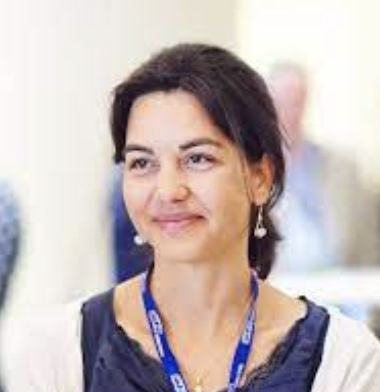
Sarah Ouziaux
ENGIE Impact : Segment Manager – Regulated, Institutional & Multilateral Organizations – basée à Bruxelles
The role of female volunteers: a strong requirement in our approach
Eric Bassac, President of Energy Assistance France:
“At Energy Assistance France, our projects mobilized 31 volunteers, which 22 have participated in missions. 1/3 of the volunteers were women and 6 were first-time starters.
Of the 120 members of our association, 43% are women. Each year, they are more and more committed. We have a perfect mix on the board of directors and our permanent representative is a woman.
Today at Energy Assistance in Belgium, we have 36 volunteers, 6 of whom are women. »
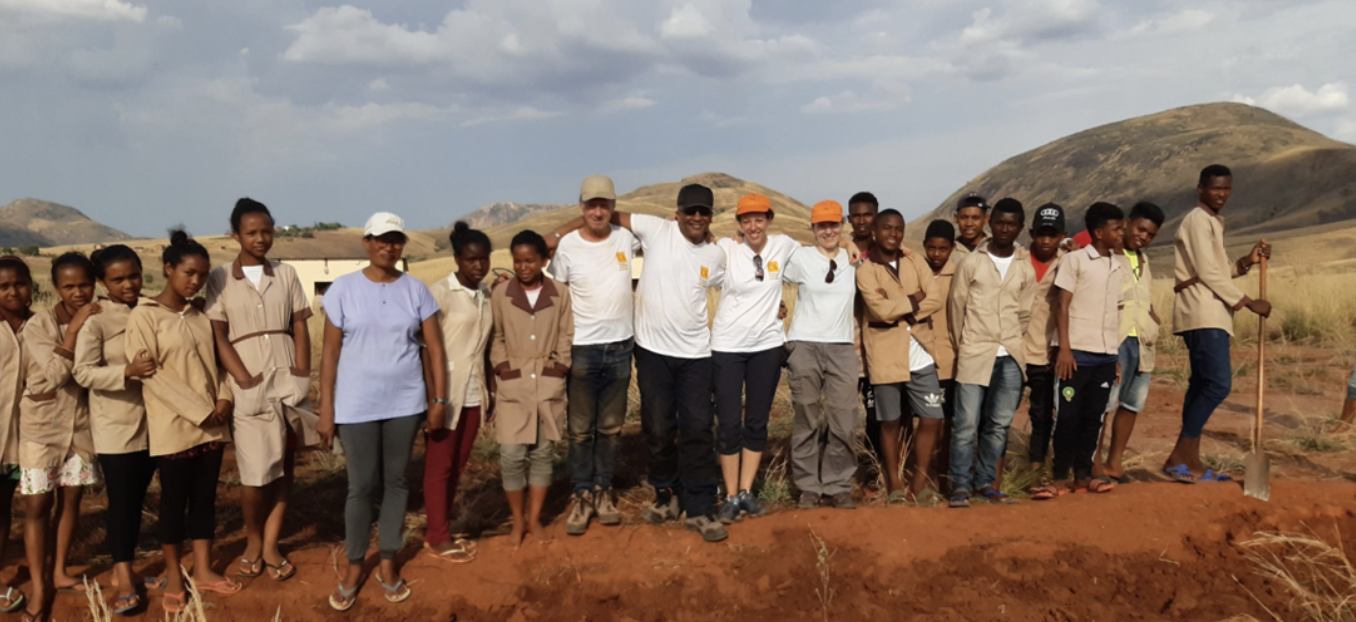
Sarah Ouziaux, ENGIE Group Employee

Sarah Ouziaux, ENGIE Impact : Segment Manager - Regulated, Institutional & Multilateral Organizations – basée à Bruxelles
Sarah, what is your background?
After a double Master’s degree in France and England a number of years ago, I started my career in wastewater treatment in England. Then, I worked 2 years for Unicef in Denmark, before coming back to France, orienting my career towards the energy power plant sector and finally joining the Engie group in Belgium 12 years ago as a project manager and then business developer. For 2 years, I have been working on gender equality issues in the energy sector.
Why did you get involved in Energy Assistance?
By nature, I cannot fail to be involved in an association. At Tractebel, I envied the colleagues who left for Energy Assistance in Africa, I thought I was not up to the task, not being an electrician and not feeling able to wire panels and an inverter on my own. Then during a conversation with Tony Moens de Hase, General Manager of Energy Assistance Belgium I learned that Energy Assistance needed other skills than purely electrical skills and that I had a place in it. I seized the opportunity and joined EA Belgium!
What was the mission you carried out ?
In September, I was part of a team of 4 volunteers to set up 3 solar panel and battery installations – to allow the pediatric, maternity and laboratory departments of Saint Jean de Dieu Hospital in Boko to continue to operate despite power cuts. This mission was located in Parakou – in central Benin and 9 hours drive from Cotonou.
Your impressions?
My very first feeling was pride to be part of the group of volunteers with a little apprehension about the dynamic that was going to take hold. When we arrived in Benin, we were very well received and accompanied to the hospital where we were staying in a bungalow a little away from the main buildings.
I am extremely proud to have learned how to assemble panels and boxes, take charge of the preparation of colleagues’ activities by locating the wiring of the site, organize and coordinate carpenters and painters, discuss with the director and I was able to resolve some situations thanks to my contacts with the manager of Engie in Parakou in whom I discovered a beautiful person.
Obviously, there are also points for improvement, one of them concerns gender equality, a subject to which I am sensitive and I know that my role was eventually to serve as a role model. So since we also had to train 4 young people, I thought that it was a shame that none of them were young women.
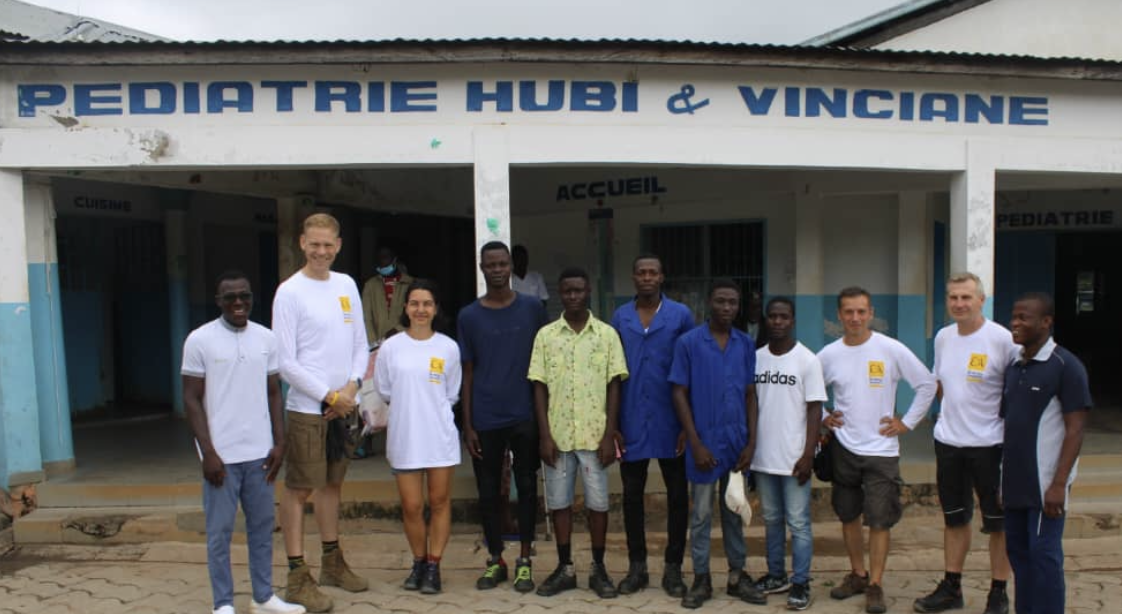
Tiphaine Houssin, collaboratrice du Groupe ENGIE

Tiphaine Houssin, ENGIE Group Employee, tells us about her commitment to Energy Assistance France.
Tiphaine, what is your background?
I am a thermal engineer by training, I worked for two years in a research office specializing in energy audits of collective housing with the aim of renovating them and reducing their energy consumption.
I joined the Engie Solutions BU 5 years ago as a research engineer in the South sales department. Concretely, I respond to calls for tenders on the creation or renewal of urban heating and cooling networks in order to develop renewable energies in our territories.
Why did you get involved in Energy Assistance?
I chose to work in the field of energy to take part in the climate challenge and change the way we consume our resources.
I wanted to join the Engie group to be able to participate in large-scale projects with a strong and short-term impact. Heating networks impact neighborhoods, entire cities. But I wanted to feel even more useful and go out into the field. That’s why I looked for an association to join in which I could invest myself and in which I could find my convictions. That’s why I chose to join the Energy Assistance association in 2020.
What was your mission?
When I joined the association, I had no field experience. I simply contacted Anne Rotschi, permanent member of the NGO, to offer me as a volunteer on a mission. It was her who positioned me on the mission of electrification of a school and a health center in the village of Goka Kope in Togo.
This mission was funded by Engie BtoC via the Engagement program of its individual customers.
It was organized with our partner the Komla Project and the Togolese Children’s Association, some of whose members were on site at the time of our mission. They are the ones who welcomed and hosted us.
The challenge through this mission is to allow students to follow their schooling in good conditions. The village also wishes to develop literacy classes for adults, mainly women who work during the day. Giving them access to electricity and lighting will allow them to respond to this problem by offering evening classes. Finally, the photovoltaic installation will also provide access health care to all villagers in good sanitary conditions.
The studies and the order of the equipment had already been carried out by two retirees and veterans of the association, Guy Pedron and Bernard Lamour, before I arrived on the project. They ordered all the equipment from a local company located in the capital Lomé. So the three of us left, with Guy and Bernard, in February 2022.
When we arrived our first mission was to check that all the equipment was in good number and in good condition.
We stayed in an accommodation center 30 minutes from the village of Goka Kope.
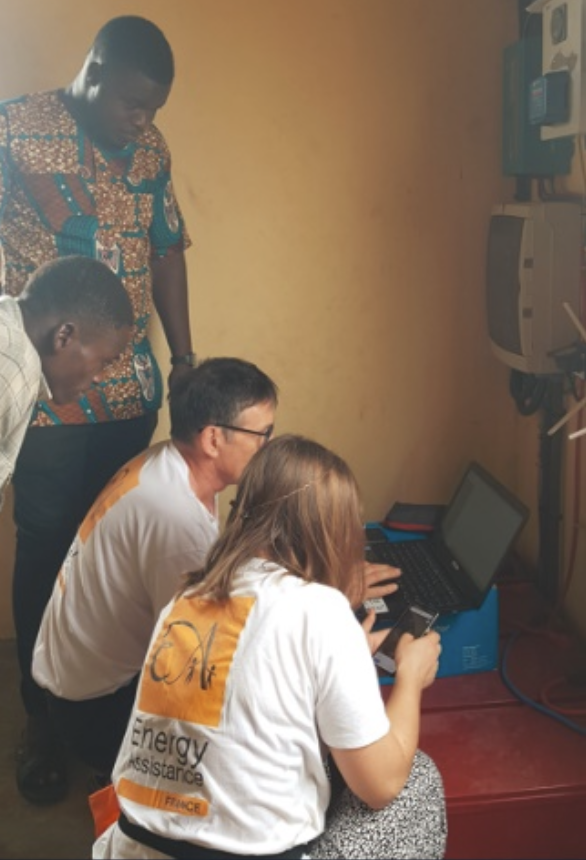
The village is equipped with a primary school and a kindergarten. There are 230 students, half of them are girls. A health centre was under construction at the time of our mission.
We installed 6 solar panels and the control kit in the main building. Our work went as far as the installation of the entire interior electrical distribution (plug, lamps). This installation was sized to power all the buildings of the school and the care center.
Your impressions?
I have very fond memories of this mission. We were very well received by the village chief, the teachers, and the villagers.
I was very moved to see so much enthusiasm with the villagers to come and observe and participate in the work. Many of them came back with us every day. They were curious to learn how to install all the equipment.
It was quite easy to talk to the men, but almost impossible with the women who did not speak French, except for the two teachers.
Another aspect that appealed to me, but more generally, was soil pollution with the dispersion of plastic bags of all kinds, even in the bush. There is a lot of awareness-raising work to be done among the population to clean up and create a waste service.
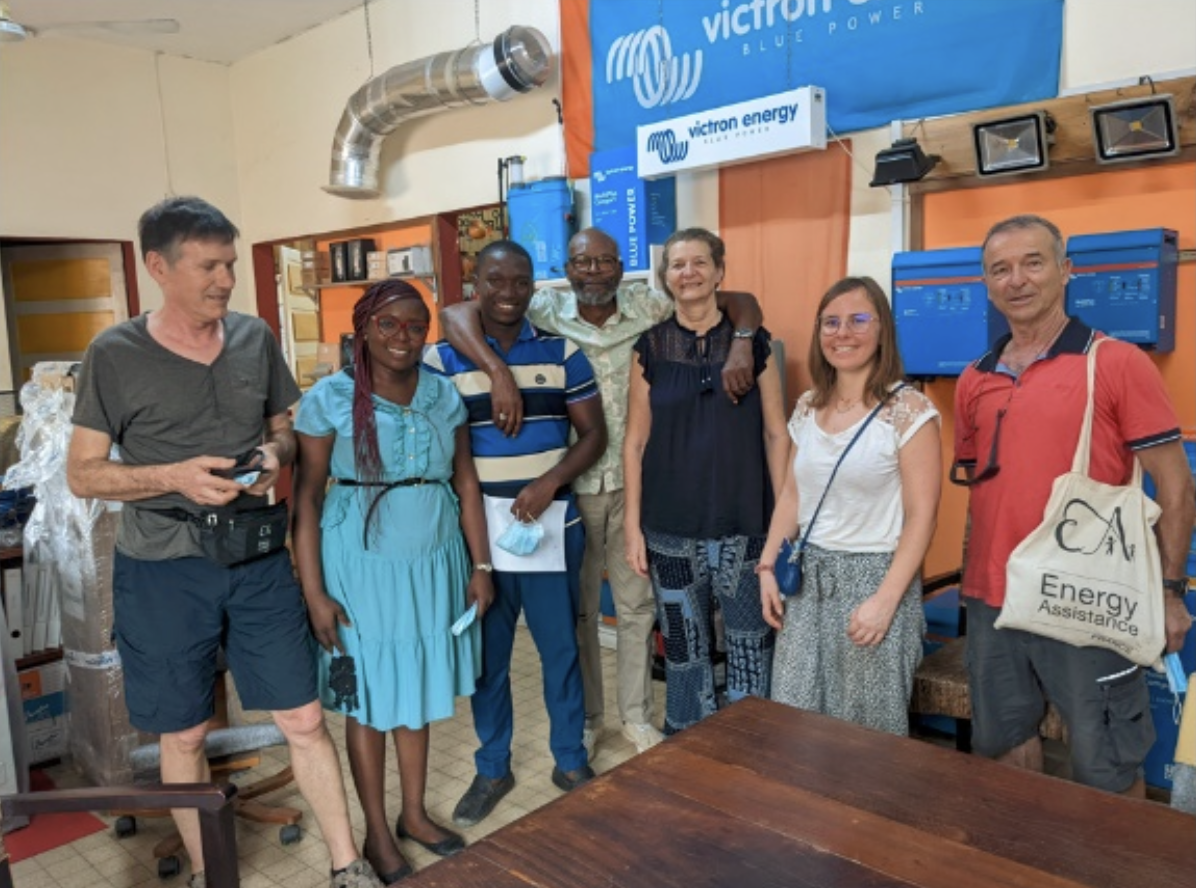
Finally, I was impressed to see the organization of the Association, the supervision that we had to carry out this mission in good conditions. I felt confident when I left the France and proud to have left Togo leaving a working facility.
What do you expect from the ENGIE Foundation?
This is exactly the kind of action I expect from the ENGIE Foundation. Allowing everyone to have access to energies and to make available to all the most virtuous energies possible is what motivates me, and I have made it my daily work.
We are now working to reduce our energy consumption, but we cannot forget that some do not have access to this comfort, and it is also up to us to help them develop means of green and autonomous energy production.
Allowing ENGIE employees to participate in this kind of action is a real motivation for me.
International Girls' Day
This year, we are celebrating the 10th anniversary of the International Day of the Girl Child. This day, wanted by the UN, is an opportunity to focus on the challenges faced by the 600 million adolescent girls in the world and to promote their empowerment and the respect of their human rights. With one observation: throughout the world, young girls continue to face unprecedented challenges in terms of their education, their physical and mental well-being, and the protections needed to lead a life free of violence.
Let’s recall some numbers:
In 2022, worldwide: 32 million girls who are not in school, 12 million girls who are married before the age of 18.
The ENGIE Foundation is convinced that the role and the future of girls, future women, are essential to contribute to the achievement of the Millennium Goals. The girls of today will be the women of tomorrow.
For 30 years, the ENGIE Foundation has paid particular attention to projects that have an impact on the lives of young girls through
- Access to education, culture and health,
- Access to energy and essential goods, because without energy there are no schools, hospitals, drinking water,
- Integration, employment, the fight against poverty, in order to allow an economic activity favorable to the development of the community.
The ENGIE Foundation wants to give young girls a chance.
Focus on 3 projects of the ENGIE Foundation that have benefited more than 1,280 young girls
The ENGIE foundation has accompanied 1243 young girls with the iNSPIRE program
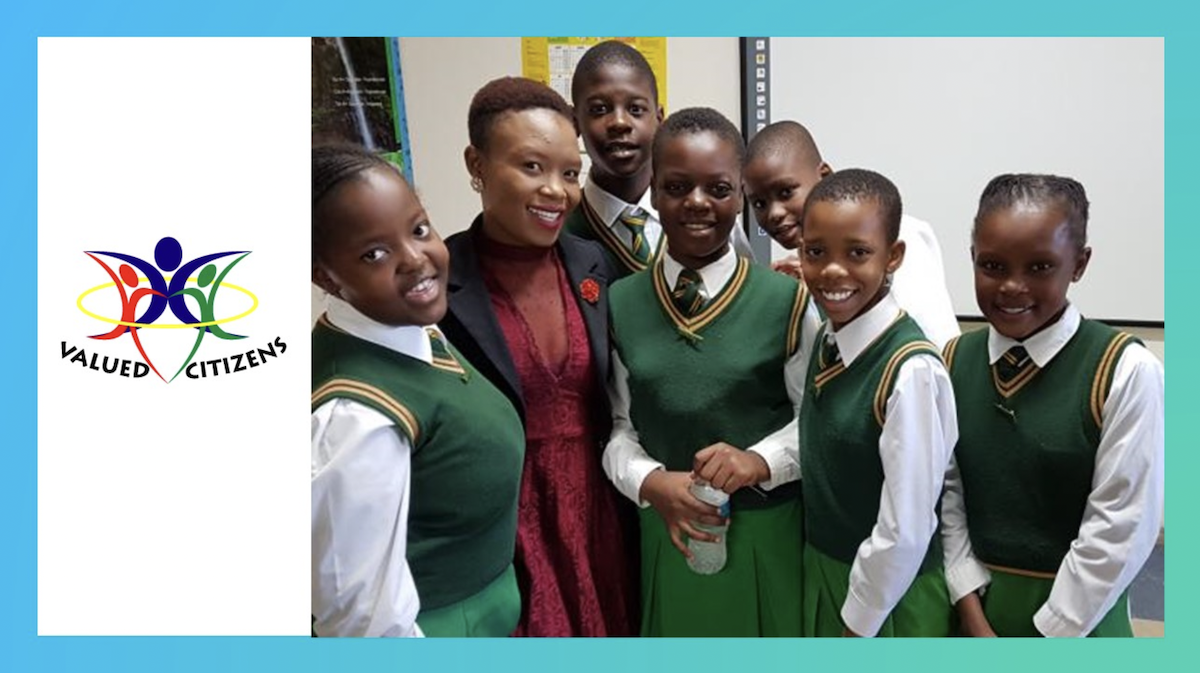
For 20 years, the ENGIE foundation has been one of the historical partners of the NGO Valued Citizens Initiative.
Valued Citizens is an association that aims to inspire individuals to become responsible citizens, determined to lead their lives by engaging in South African democracy and economy.
Since 2009, the ENGIE Foundation has been supporting the NGO on the iNSIRE program.
This iNSPIRE program, aims to address gender inequality and poverty in communities by developing and challenging girls’ self-perception, promoting their emotional well-being and helping them to become young leaders in their communities, becoming the positive role models that young people expect
Today, the iNSPIRE program has reached 1243 student girls who are leading their iNSPIRE clubs in their respective schools to address gender-related challenges that impact their dignity, confidence, and future.
Through this, adolescent girls leaders have led 110,380 students, both boys and girls, with sustainable projects that have brought about iNSPIRE change in their lives and schools.
With the support of the ENGIE Foundation, 36 young girls participated in the WIA Code Ngaparou program in Senegal
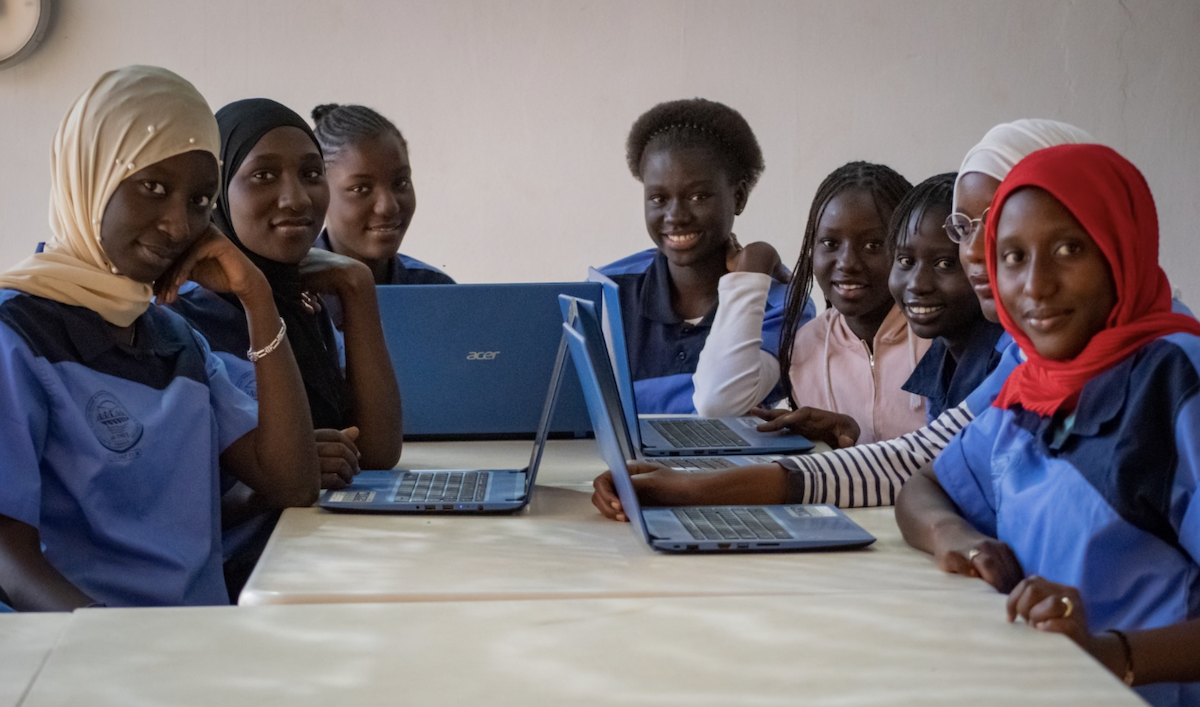
The ENGIE Foundation, supported Women in Africa for the launch of the WIA Code Ngaparou program in Senegal with the aspiration to prepare young girls for careers in science, technology and innovation in Africa.
For 10 months, from January to September (2022), these 36 girls from Lycée Serigne Mamadou Lena Diop of Ngaparou, aged 16 to 20, participated in the WIA Code program every Thursday during school periods.
During this program, they were trained, mentored and coached on two main themes:
- Coding: basics of coding, problem solving, oral presentation of projects.
- Soft skills” which focus on self-confidence, leadership, setting personal goals, public speaking and discovering new careers.
The objective was to:
- Familiarize and develop skills
- Have a first professional experience in the field
- Networks and communication
Foundation « Un Avenir Ensemble »

Fondation “Un Avenir Ensemble”, acts for the social mobility of France by proposing to the decorated of the nation (Legion of Honor, Military Medal, National Order of Merit) to sponsor deserving and motivated students.
It is a support for students in a fragile socio-economic situation, from the “classe de Seconde” until their integration in the professional life, combining financial contributions and personalized action programs from the Foundation “Un Avenir Ensemble”.
The ENGIE Foundation accompanies the journey of 6 young high school girls with the support of ENGIE employees.
The ENGIE Foundation supports a major project in Africa to fight violence against women
Fighting violence against women, access to energy: a major step forward with the inauguration of the African Institute for Minimally Invasive Surgery (AMISI) at Panzi Hospital in the DRC by Dr. Mukwege, winner of the 2018 Nobel Peace Prize, in the presence of Mr. Francois Hollande.
A reference hospital in the DRC and in Africa for treating women victims of war violence, Panzi Hospital is seeing the completion of a major development in its action, in partnership with St. Peter’s Hospital in Brussels with a new building composed of 5 operating rooms dedicated to minimally invasive surgery, performed by laparoscopy, a particularly effective technique for treating women victims of sexual violence.
The ENGIE Foundation supported the project by financing the energy equipment of the new operating room of the Panzi hospital, which was built by the NGO of ENGIE employees – Energy Assistance.
This operating block is equipped with high-tech material that will allow the Congolese population to benefit from the latest surgical techniques in the DRC.

This new health structure, electrified by solar panels, thanks to the support of the ENGIE Foundation and Energy Assistance, will serve as a framework for the treatment of women victims of sexual violence and other pathologies by minimally invasive surgery. It is also intended for the training of doctors from all over the continent. 1,800 patients in 10 years have already been treated thanks to Dr. Denis Mukwege and Professor Guy Bernard Cadière.

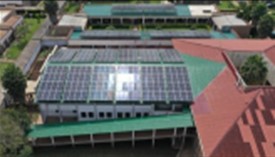
In the presence of many personalities including Jean-Jacques Mbungani, Minister of Health, Albert-Fabrice Puela, Minister of Human Rights, Théo Ngwabije, Governor of South Kivu and Guy Bernard Cadière, Professor of Surgery, the former Head of State of the Republic of France cut the symbolic ribbon of this new infrastructure.

During this inauguration, François Hollande mentioned that this African institute is a reference in the world. The ENGIE Foundation via Energy Assistance is especially proud to have contributed to it.
“This building has the ambition to become a lighthouse that will illuminate scientific research, training and practice in the field of minimally invasive surgery at the level of our country and the continent“, said Denis Mukwege.
The Women’s Reparator praised the support of all those who participated in the realization of this project, including the ENGIE Foundation.
The ENGIE Foundation commits to The Great Bubble Barrier to fight against plastic waste in Portugal
ENGIE Foundation and The Great Bubble Barrier signed a partnership to support the implementation of a new Bubble Barrier in the District of Porto in Portugal. The new Bubble Barrier is the first of its kind in Portugal and will be implemented by Q3 2022. The Bubble Barrier could reduce approximately 86% of all plastic from flowing in to the Atlantic Ocean each year coming from a river in this region.
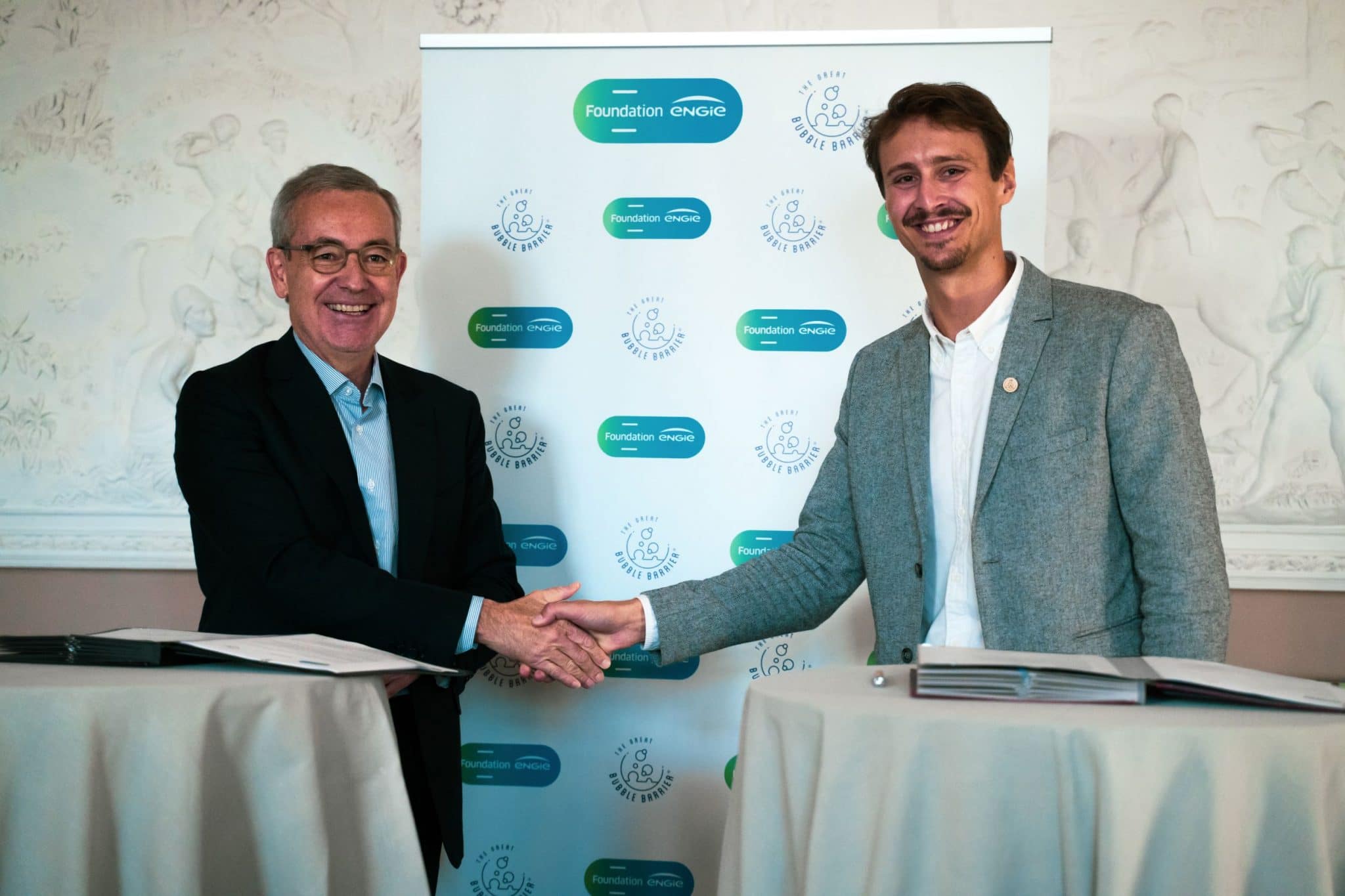
Signature of the partnership by Jean-Pierre Clamadieu, President of the ENGIE Foundation and Philip Ehrhorn, Chief Technology Officer, Co-Founder of The Great Bubble Barrier
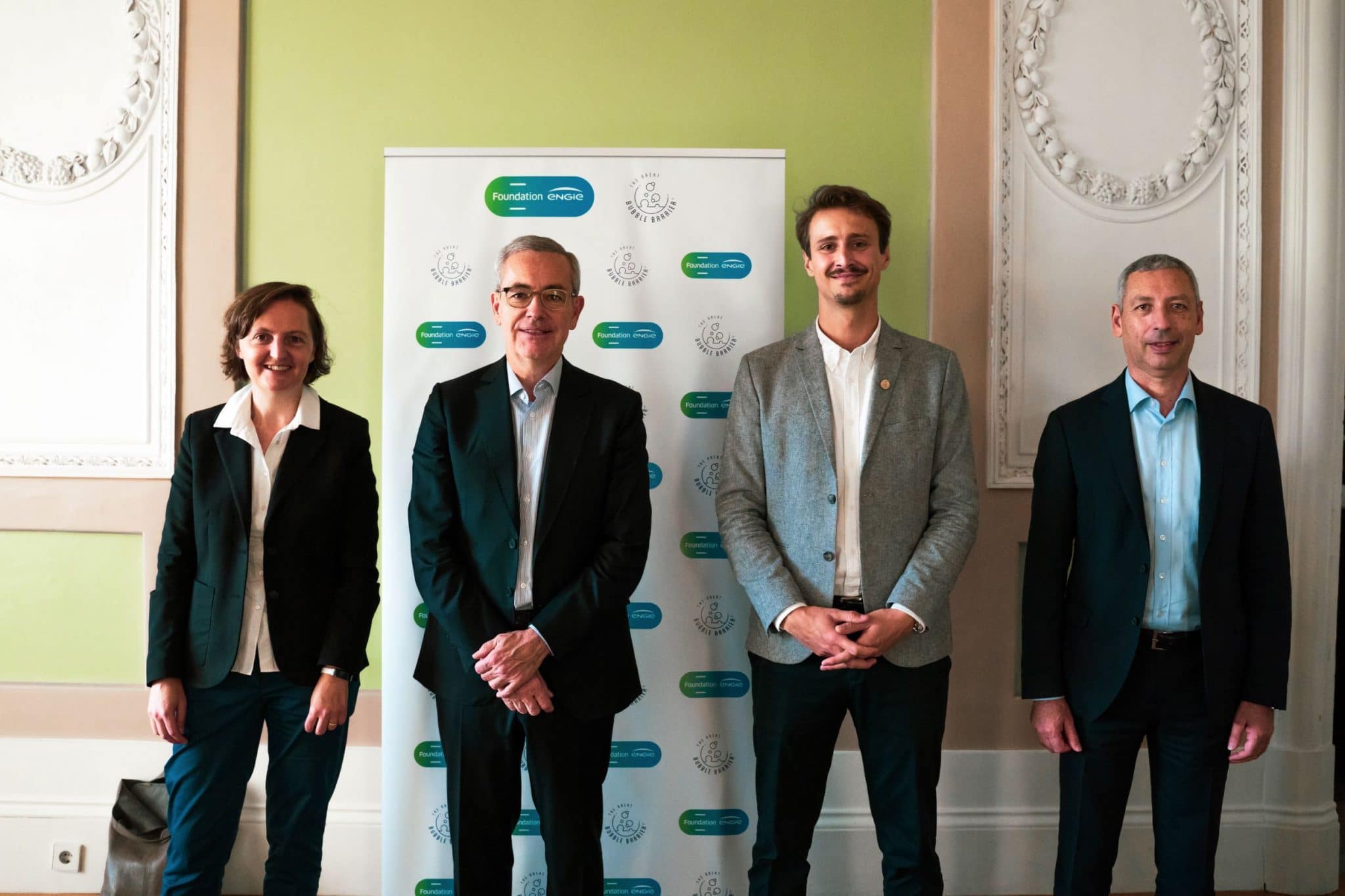
Claire Waysand, Executive Vice President of ENGIE – Vice Président of the ENGIE Foundation ; Jean-Pierre Clamadieu Chairman of the Board of Directors at ENGIE.- President of ENGIE Foundation , Philip Ehrhorn , Chief Technology Officer, Co-Founder de The Great Bubble Barrier et Paulo Almirante Executive Vice President of ENGIE
Plastic pollution is threatening coastlines globally, and Portugal is no exception. According to a recent study the Porto region is home to two of the rivers with the highest levels of plastic pollution in Portugal There is an urgent need for measures that stop plastic from flowing into our oceans. With the installation of a Bubble Barrier in the Porto region, The Great Bubble Barrier will be able to tackle the problem close to the source. At the same time, the system aims to build awareness among both residents and visitors about the issue of plastic pollution, making the impact of the project bigger than just regional.
The Bubble Barrier is an innovative and proven technology that creates a bubble curtain by pumping air through a perforated tube on the bottom of the waterway. The diagonal placement of the barrier directs waste to the river banks which is then collected and removed. A first project was implemented in Amsterdam in 2019 and it is currently operational.
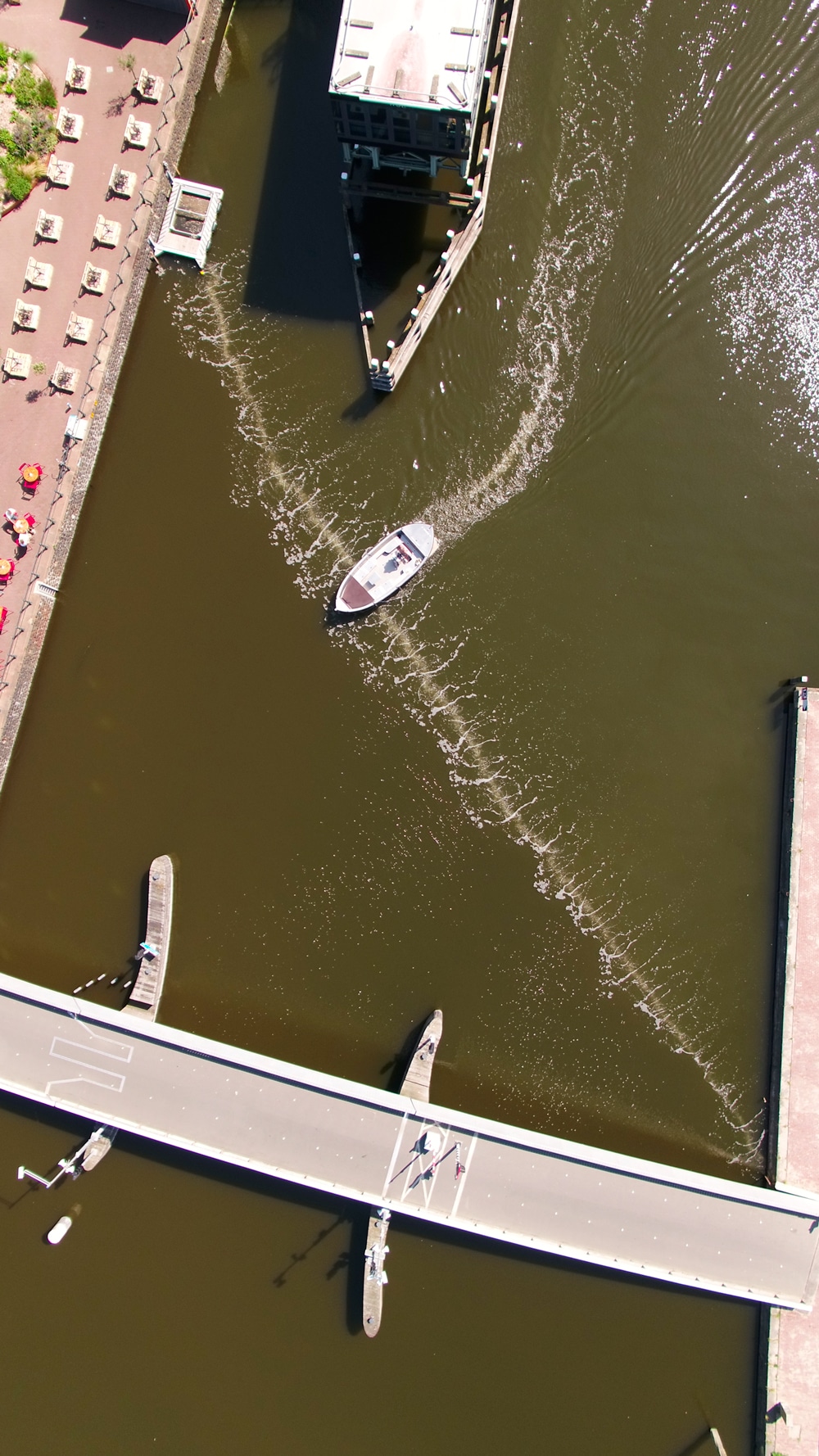
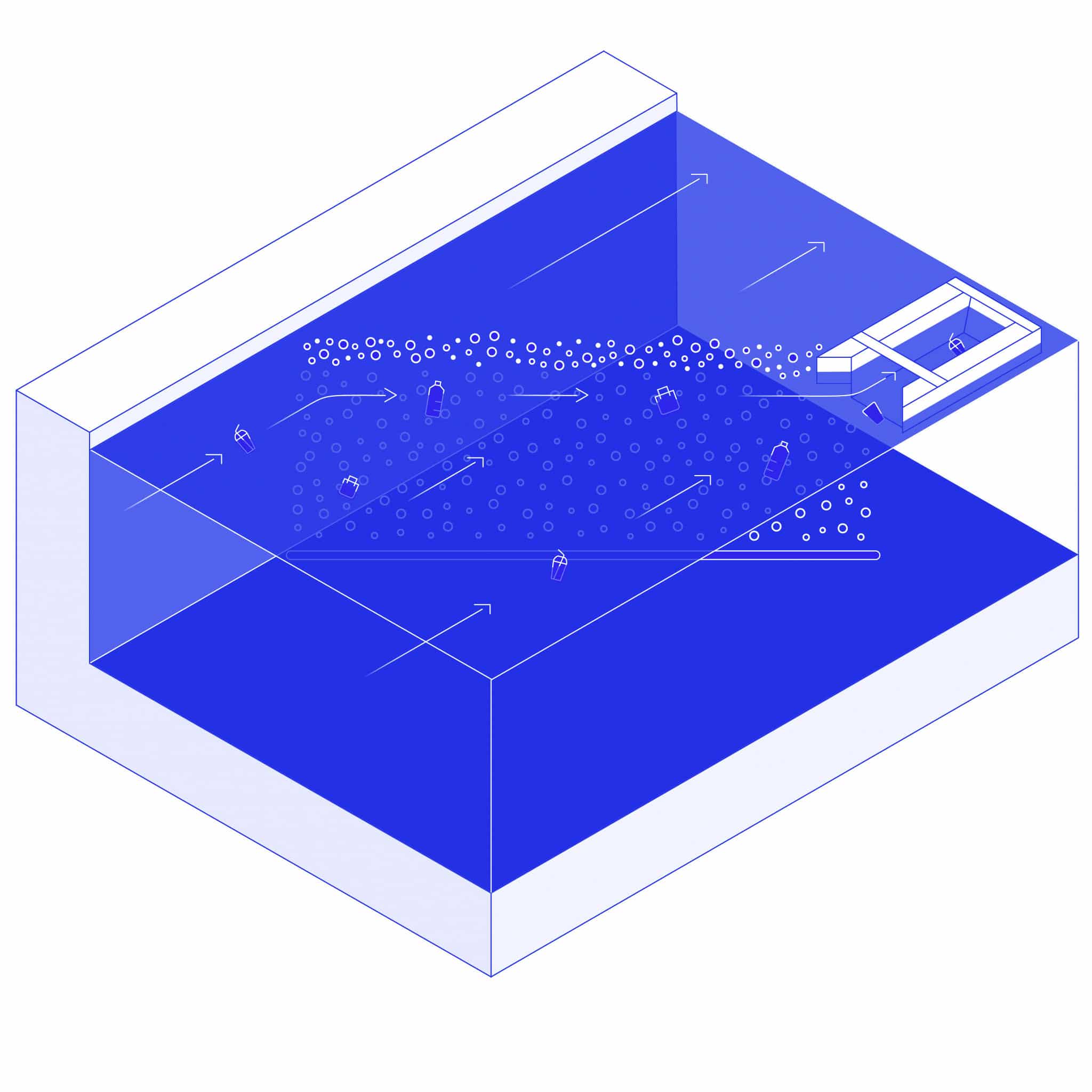
Credits The Great Bubble Barrier
Photo du projet réalisé aux Pays Bas
ENGIE Foundation is proud to support innovation, environment and local action with the implementation of the new Bubble Barrier and to join efforts to fight against plastic pollution in Portugal.
The ENGIE Foundation is strengthening its commitment to biodiversity and environmental protection through this first project in Portugal.
In Portugal, the ENGIE group has positioned itself on the development of renewable energies, through its subsidiaries, to contribute to countries carbon neutrality.
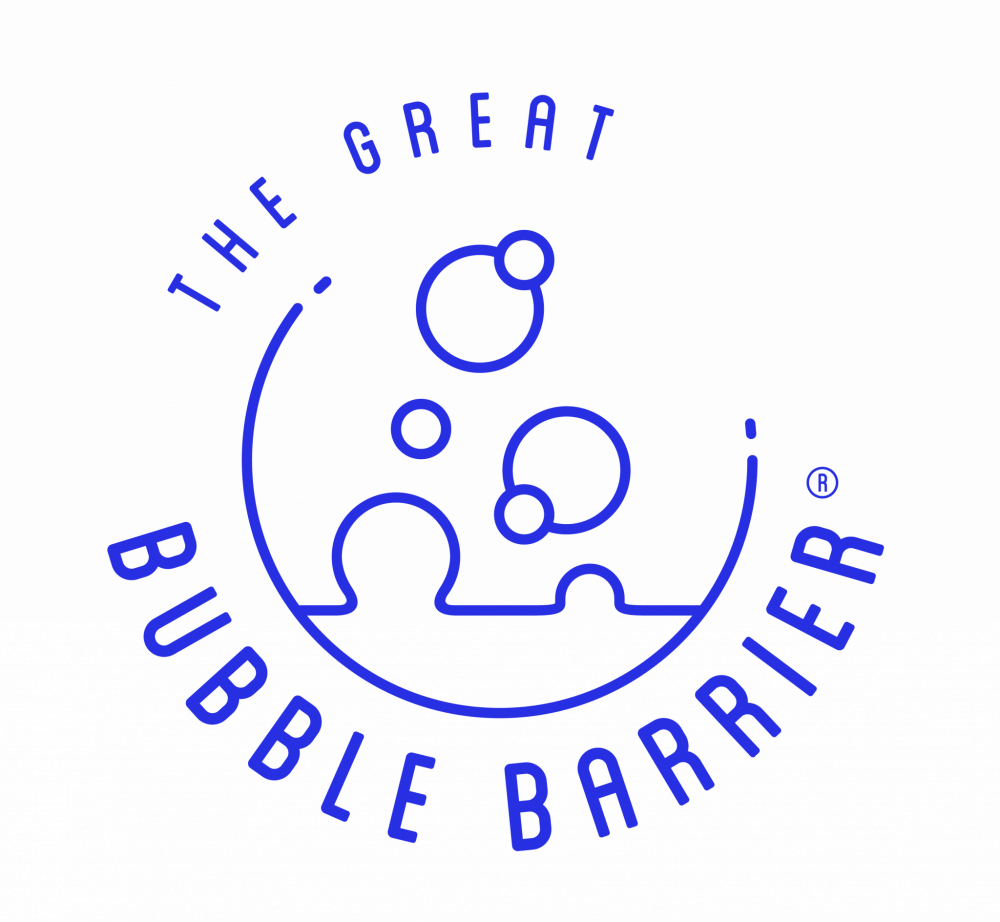
About The Great Bubble Barrier :
Founded in 2017 by 4 individuals, The Great Bubble Barrier is a social enterprise which developed an effective technology to stop plastic pollution in rivers using bubbles.
For more information visit: www.thegreatbubblebarrier.com
About the Technology:
Bubble Barriers bring waste to the surface of a river, where the diagonal placement directs waste to the river banks which is then collected and removed.
Bubble Barriers catch plastic over the full width and depth of a river and prevents plastic from ending up in the ocean without blocking ship traffic or hindering fish migration.
The 1st long term Bubble Barrier was installed in the canals of Amsterdam in November 2019 and more cities in the Netherlands and over the world are reaching out to implement this solution in their rivers.
Caring for life and our planet is what has driven the ENGIE Foundation for almost 30 years. With 33%% of its projects dedicated to access to renewable and sustainable energy and to biodiversity in 2021, the ENGIE Foundation is committed year after year to the environment. The purpose is to participate in ambitious, impactful projects and participate in the collective effort of the 2030 Agenda through the achievement of the Sustainable Development Goals (SDGs).
To preserve the environment, it is essential to favor clean energy sources … and to make citizens aware of environmental issues.
WOMAN (trailer) by Anastasia Mikova and Yann Arthus-Bertrand
WOMAN features women from every continent, rich and poor, known and unknown. They all share their emotions and stories without taboos. Together, they give rise to a new vision of the world, which is essential for building the future of our planet. After “Human” in 2015, Yann Arthus-Bertrand and Anastasia Mikova present “WOMAN” touching on several powerful topics such as education, poverty, justice and courage. Because it is a priority for women’s voices to be heard, the ENGIE Foundation has decided to support Woman and several associations featured in the film.
“We felt that women urgently needed to speak out and we needed to give them the opportunity to do so. “ – Anastasia Mikova.
2,000 Women in 50 countries
Woman fulfils the desire to look at the world through a woman’s eyes. This film takes us to the four corners of the world to meet the first ones: all these women with different paths in life, shaped by their culture, their faith or their family history. It is also a reflection of today’s world. A reflection that is often gloomy considering all the injustices suffered by women. But above all, this film is a message of love and hope sent to all the women of the world. An attempt to understand their lives, to measure how far they have come but also how far they still have to go. How can this be done?
“WOMAN” is a “fresco” that features the voices of 2,000 women who have agreed to testify in 50 countries. Yann Arthus-Bertrand and Anastasia Mikova have met individuals who are both known and unknown, all of whom are heroic in their daily lives, from all over the world. Aim? Expose some of the injustices that women face, and demonstrate their determination to overcome barriers and stereotypes.
Profits from the film will be donated to the association WOMAN(s) (Women on media and news – school) whose main mission will be to train women and girls from all over the world in media related professions. Through the proceeds of the film and the support of our partners, the association will offer women the opportunity to learn visual professions so that they in turn can speak out for all those who have for too long not been heard in their country.
The ENGIE Foundation is getting involved!
In addition to supporting the film WOMAN, the ENGIE Foundation wished to support some of the women interviewed by the film teams in their actions.
- Support for female victims of rape in the Democratic Republic of Congo
Nobel Peace Prize winner fights against an epidemic: rape, which has become a weapon of war for groups fighting for control of the region’s minerals. Denis Mukwege, the so-called ‘Women’s Repairman’, has treated more than 50,000 female survivors of sexual violence at his hospital in Panzi, which he founded in 1999. Victims receive surgery in the facility, using state-of-the-art medical endoscopy techniques, and are also supported psychologically and legally.
Because this women’s cause is at the heart of its commitments, the ENGIE Foundation has decided to support Denis Mukwege. This partnership will involve the re-engineering of the electrical facilities at the Panzi Hospital, in order to provide a power supply as well as to significantly increase the ecological and economic efficiency of all of the structure’s facilities and equipment.
- NGO for the villagers from Ndem in Senegal
We want to be a partner in action. With the teams at WOMAN, we identified the NGO NDEM in Senegal, located between Dakar and Saint-Louis. An NGO with 4,600 members and many active women, which has been working for 30 years with 16 villages in various fields such as health, education, environment, agroecology and entrepreneurship. It now needs drilling and solar facilities in order to further develop its programme and bring energy to the most isolated areas. We quickly got Energy Assistance, an internal NGO of the ENGIE Group, on board to fine-tune the programme as much as possible!





